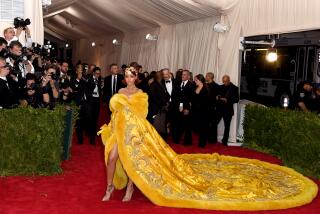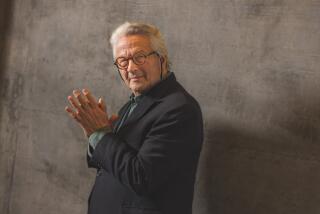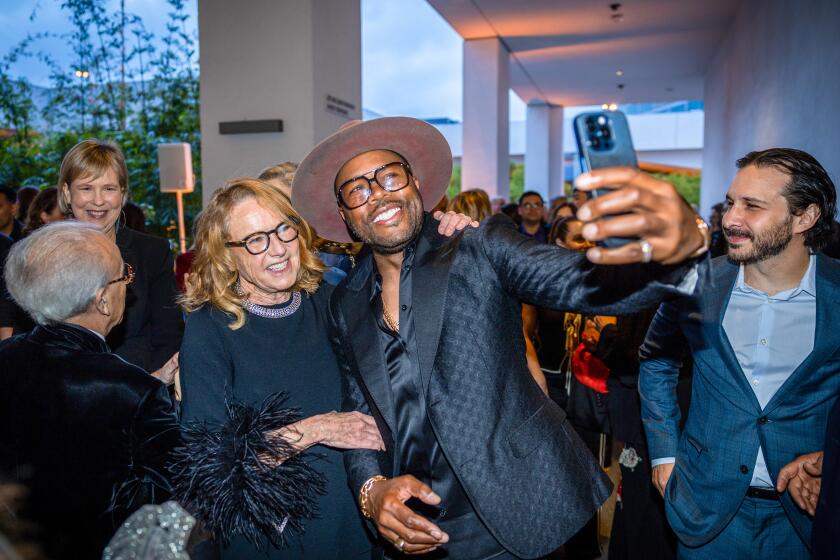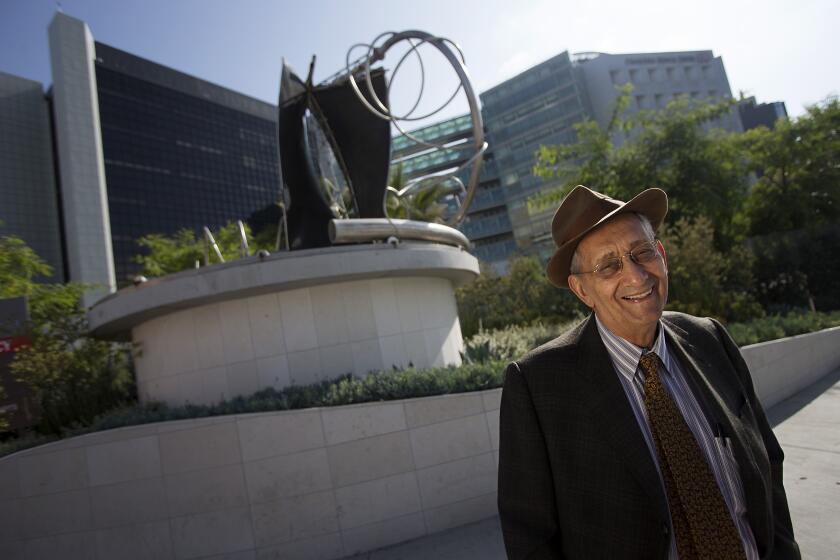STAGE REVIEW : ‘TIME FLIES’: A MAN FACES HIS WIFE’S DEATH
If Paul Linke’s “Time Flies When You’re Alive” at the Powerhouse is a piece of theater, then this is a review of it. But, be warned, neither proposes to be traditional.
This grueling, intimate event cannot be called a “show.” An act of catharsis or a journey maybe. Those are the kinds of words it invokes. In pedestrian terms, it is one man’s bewildering odyssey through the mine fields of his wife’s death by cancer at 37. But these phrases only beg the intensity of the occasion, proving once more that tragedy is never banal--especially when it happens to you.
Despite the upbeat title and the considerable humor Linke extracts from the absurdities that are the frequent concomitants of profound adversity, “Time Flies” is astonishing for something else entirely: its full-bore, unflinching and unvarnished subjectivity.
Light entertainment this is not.
Note the subtitle: “A Journey Through Home Miscarriage, Home Birth and Home Death.” That calls it in black and white, which is more or less like calling “Hamlet” a play about a neurasthenic prince. But Linke gives us much more. He delivers the richness of his love and pain: the lurid hues, the nuances, the endless hours, hanging minutes, anguished moments.
Hardly moving from the isolation of his chair on stage, he eases us gently into the story, reaching back to a time even before he met his wife Francesca--”Chex” for short, a nickname given to her by her brother over a bowl of cereal.
He touches sparingly but tellingly on the attraction he felt the moment he saw her for the first time (“eyes like Switzerland”), on their falling in love, her miscarriage, their marriage and her insistence on having her babies at home--something he had never considered but which he supported because it was important to her. And which Linke supported as he was to support all of her difficult decisions later in life.
The acute irony of Francesca’s rigorous adherence to all things natural--foods, births, remedies, cycles--is not lost on him or us, especially when she discovers that that lump in her breast is malignant and the search begins for a natural way to return to health (after surgery and the decision to spurn chemotherapy and radiation). Let’s be clear. She is not being stubborn. She is being herself. The idea of killing the poison with poison is simply not part of her lexicon.
And so it starts--an excruciating, enlightening, tormenting, exasperating, tortured search for a cure (including wild goose chases to Tijuana, a momentary threat of separation, tragicomical encounters with eccentric “healers”) and the inexorable descent into a slow, reluctant death. Linke is as vivid as he is ruthless. A model of outward equanimity, he shares it all: the despair, stress, anger, confusion and haunting black humor.
In filling in the details, Linke fleshes out vivid portraits of immense dignity and humanity, “embracing, crying, laughing, living.” That is what distinguishes this unsparing hour and a half. It is not melodrama and not a morbid series of “and thens.” It is a shattering picture of one fragile family’s terrifying voyage through upheaval and trauma (including the startling birth of a daughter amid the havoc) as well as a husband and father’s growing affirmation and strength in coping with loss.
In no small way, it is also a stunning affirmation of life.
But is it theater? In the ritual, purifying sense, which is where all theater begins, yes, though nothing quite as dense or personal or affecting as this confessional comes to mind. Linke’s performance, if one can call it that, is all the more gripping for being simplicity itself. The tone and the telling are so conversational as to seem improvised. Mark Travis directed.
It must have taken enormous bravery to put this together and perform it. It takes a certain amount of bravery to sit through it. For those with the fortitude, it’s a wrenching experience that won’t soon be forgotten.
Performances at 3116 2nd St. in Santa Monica run Wednesdays only, 8:30 p.m., through Nov. 18. Tickets: $7; widows and widowers, $3.50; (213) 392-6529.
More to Read
The biggest entertainment stories
Get our big stories about Hollywood, film, television, music, arts, culture and more right in your inbox as soon as they publish.
You may occasionally receive promotional content from the Los Angeles Times.






